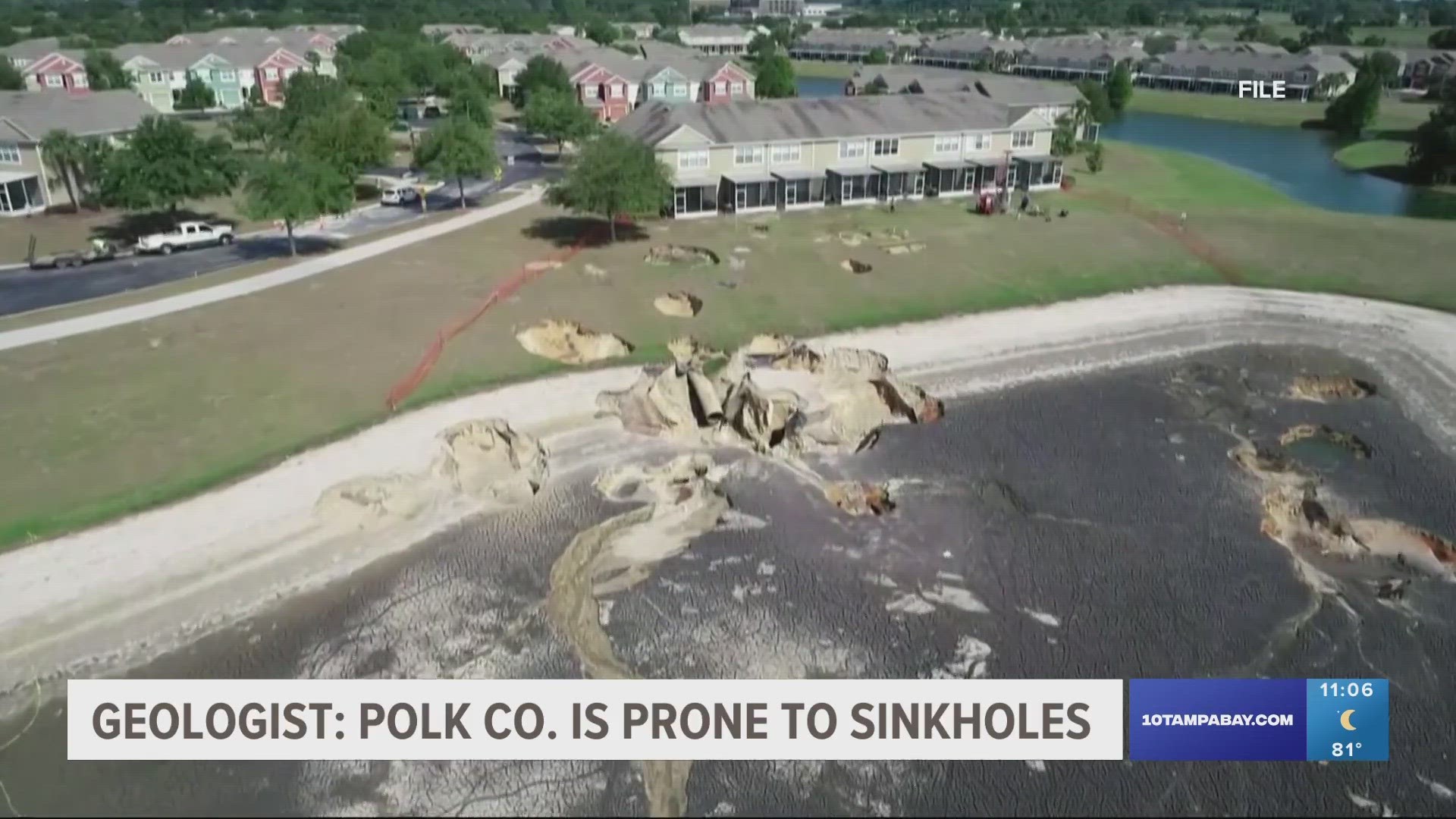LAKELAND, Fla. — Three days after a massive sinkhole opened in Lakeland, crews are still working to fill it in and there's no timeline for when the process will be complete.
Part of nearby Scott Lake Road is still closed and people who live nearby have either left their homes or are prepared to at a moment's notice.
While it's an alarming scene for many, it's not an unfamiliar one to the people of Polk County. The highest sinkhole activity occurs in our region of the state, west-central Florida.
Tony Randazzo, Professor Emeritus of Geological Sciences at the University of Florida has studied sinkholes for four decades.
"The area of concern in the state of Florida is where the geology consists of older limestone that over time has an opportunity to dissolve and form cavities and caverns," Randazzo explained.
While Hernando, Hillsborough, and Pasco counties are known as Florida's "Sinkhole Alley," Randazzo says nearby Polk County, Lakeland specifically, is also a hot spot.
"I have looked at hundreds of sinkholes in that general area of the county," Randazzo said. "Many of the lakes in Polk County, they are sinkhole lakes. They are older sinkholes that are filled with water and they have the potential to unplug and drain. Fortunately, not very frequently."
Randazzo said the heavy rain associated with this time of year in Florida has been dubbed "sinkhole weather."
"It's a time when you have extended periods of rainfall over a short period of time in a sinkhole-prone area, and that could cause the triggering of sinkholes," Randazzo said.
While the vast majority of homes in any sinkhole-prone area are on safe, stable earth, he advises people to test their property if they have concerns.
"There are a number of different companies in the state that can provide testing," Randazzo said. "Some of it is not very expensive, but other options can be a significant cost."
Nearby Scott Lake was drained by a sinkhole in 2006. Now, The South West Florida Water Management District tells 10 Tampa Bay it has been monitoring the water levels of the lake for any impacts from the present sinkhole.
It said it has not noted anything out of the ordinary, but adds it "cannot make any predictions about the sinkhole's behavior, or whether or not it could spread into Scott Lake."
The sinkhole is on private property and the responsibility of filling it falls on the shoulders of the developer that owns the property. Right now, it's unclear when the process of filling the hole will be completed.

